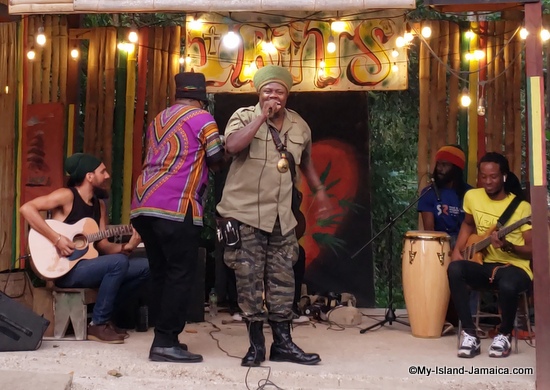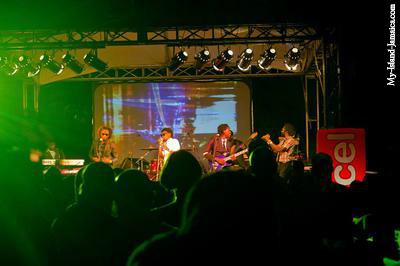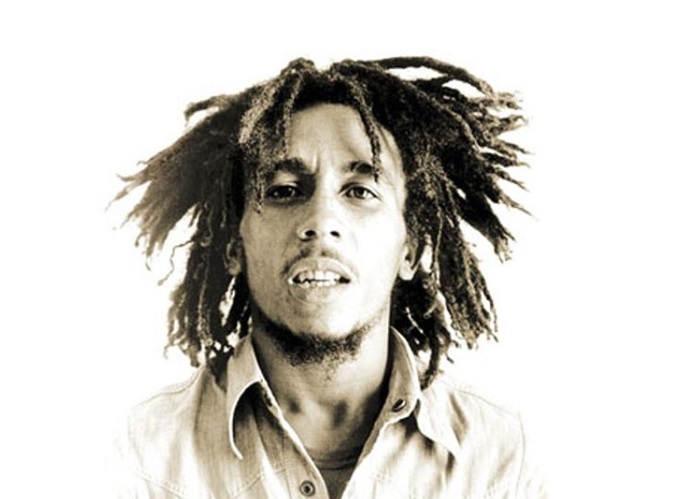Subscribe for all my updates and don't miss a thing! Sign me up!
What is the Role of Rastafarianism In Jamaican Music?
Sharing Is Caring! Share this awesome content with your friends now.
by Venehsha Johnson | Associate Writer
Jamaican music is renowned worldwide for its infectious rhythms, soulful melodies, and powerful messages. It serves as a vibrant reflection of Jamaican culture, history, and religious beliefs.
New! Take a piece of Jamaica with you💃!
Savour the memories! Now you can get your authentic Jamaican souvenir items, as well as traditional Jamaican herbs, spices and housewares on our popular e-store. Click Here to learn more.
And, if you ever need a trustworthy and knowledgeable local guide, consider booking a private tour with us!
One of the most significant influences on Jamaican music is the Rastafarian movement. Rastafarianism, born in Jamaica in the early 20th century, has played a pivotal role in shaping the country's musical landscape.
This article explores the profound relationship between Rastafarianism and Jamaican music, highlighting the key elements and contributions that have made this spiritual and cultural movement a cornerstone of the island's musical heritage.
1. Origins of Rastafarianism:
Rastafarianism emerged in the 1930s as Jamaica's religious, social, and cultural movement. It found its roots in the teachings of Marcus Garvey, a Jamaican activist who advocated for black self-empowerment, racial pride, and the repatriation of African descendants to their ancestral homeland.
The movement gained momentum with the coronation of Ethiopian Emperor Haile Selassie I, who Rastafarians regard as the Messiah or the divinely anointed King of Kings.
2. Spiritual and Cultural Significance:
Rastafarianism is deeply rooted in African spirituality, with influences from Christianity and African mysticism. It emphasizes the unity of African peoples, the worship of Jah (God), and the rejection of Babylon, a symbol of oppression and corruption.
Rastafarian beliefs are expressed through music, art, and a distinctive lifestyle that includes the sacramental use of marijuana, known as "ganja," to achieve spiritual enlightenment.
3. Reggae: The Musical Voice of Rastafarianism:
Reggae, the most internationally recognized form of Jamaican music, serves as the primary musical vehicle for Rastafarian expression. Emerging in the late 1960s, reggae embodies the heartbeat of Rastafarianism, carrying its messages of liberation, social justice, and spiritual awakening to audiences worldwide.
The genre's iconic rhythms, characterized by the "one drop" beat and syncopated basslines, provide a captivating backdrop for the profound lyrical content.
4. Lyrical Themes and Symbolism:
Rastafarian-inspired music addresses a range of socio-political and spiritual themes. Songs often speak out against poverty, inequality, and racial discrimination, while promoting love, unity, and the celebration of African heritage.
Symbolic references to biblical stories, African culture, and Rastafarian symbols like the Lion of Judah and the Ethiopian flag are prevalent in the lyrics, reflecting the movement's core beliefs and values.
5. Legendary Rastafarian Musicians:
Jamaican music boasts a wealth of legendary artists who have championed Rastafarianism through their music. Bob Marley, undoubtedly the most iconic figure in reggae music, not only popularized the genre globally but also became a global ambassador for Rastafarian ideals.
Other influential musicians like Peter Tosh, Burning Spear, Bunny Wailer, and Culture have also significantly contributed to the Rastafarian-inspired music scene, spreading its messages far and wide. Bob Marley's fame attracted a lot of copycats and transformed Jamaican music. Musicians who wanted to be as popular as Bob Marley started growing dreadlocks and embracing Rastafari. Numerous songs had their words altered, and Rastafari references were liberally scattered throughout.
The artists did as they were told since that is how the world perceived reggae. These musicians adopted the monikers "JAH," "Haile Selassie," and "Rasta" and grew dreadlocks of their own volition. They claimed to be Rastafarian to become more well-known and reap its alleged advantages.
Many people sought to "piggyback" on Bob Marley's legacy and use it as a justification for smoking marijuana (ganja) in the name of religion.
6. Influence on Contemporary Jamaican Music:
The impact of Rastafarianism extends beyond the traditional realms of reggae. Its influence can be heard in various Jamaican music genres such as dancehall, ska, and dub. Contemporary artists like Chronixx, Protoje, and Kabaka Pyramid continue to embrace Rastafarian principles in their music, infusing it with a modern twist while staying true to the movement's core values.
Rastafarianism holds a revered position in the evolution and development of Jamaican music. Its profound influence can be felt in the country's musical landscape's spiritual depth, social consciousness, and cultural richness.
Rastafarianism has catalysed change through the power of reggae and other genres, inspiring generations of musicians and listeners alike to embrace messages of love, unity, and social justice.
As Jamaican music continues to evolve, the spirit of Rastafarianism remains a vital force, ensuring that its principles endure and resonate with people around the globe.
Sharing IS Caring! Please help me get the message out by sharing this article with your friends on social media (links below). Thnx ;-)
If you found this page useful, please consider subscribing to my weekly newsletter, to get even more.
It tells you each week about the new information that I have added, including new developments and great stories from lovers of Jamaica!
Return to Jamaican Reggae Music from What is the Role of Rastafarianism In Jamaican Music?
Return to My Island Jamaica Homepage from What is the Role of Rastafarianism In Jamaican Music?
References & Sources For What is the Role of Rastafarianism In Jamaican Music?
- Writer, S. (2015) Jamaica is known worldwide for reggae music. Learn how Rastafari took reggae music to the world., Jamaicans.com. Available at: https://jamaicans.com/reggae-35215/ (Accessed: 09 July 2023).
New! Get My Latest Book👇🏿
|
You asked, I've answered! You no longer need to save for months or years, to enjoy paradise! I spilled the beans! sharing my top tips on finding cozy accommodations and secret gems, only the way a native could! Click Here to pick it up on my e-store and start saving now! |
See The Best Of Jamaica - In Videos!
|
My channel reaches over 140,000 subscribers worldwide and has leveraged over 11 million views, sharing, what I call 'The Real Jamaica'. Subscribe today and join our family of viewers. |
Read More ...
New! Experience The REAL Jamaica!
Book Your Private Tour here and experience Jamaica the way we (locals) do!
P.S. Didn't find what you were looking for?
Still need help?
Click Here to try our dependable and effective Site Search tool. It works!
Or, simply click here and here, to browse my library of over 500 questions and answers! Chances are someone already asked (and got an answer to) your question.














New! Comments
Have your say about what you just read! Leave me a comment in the box below.